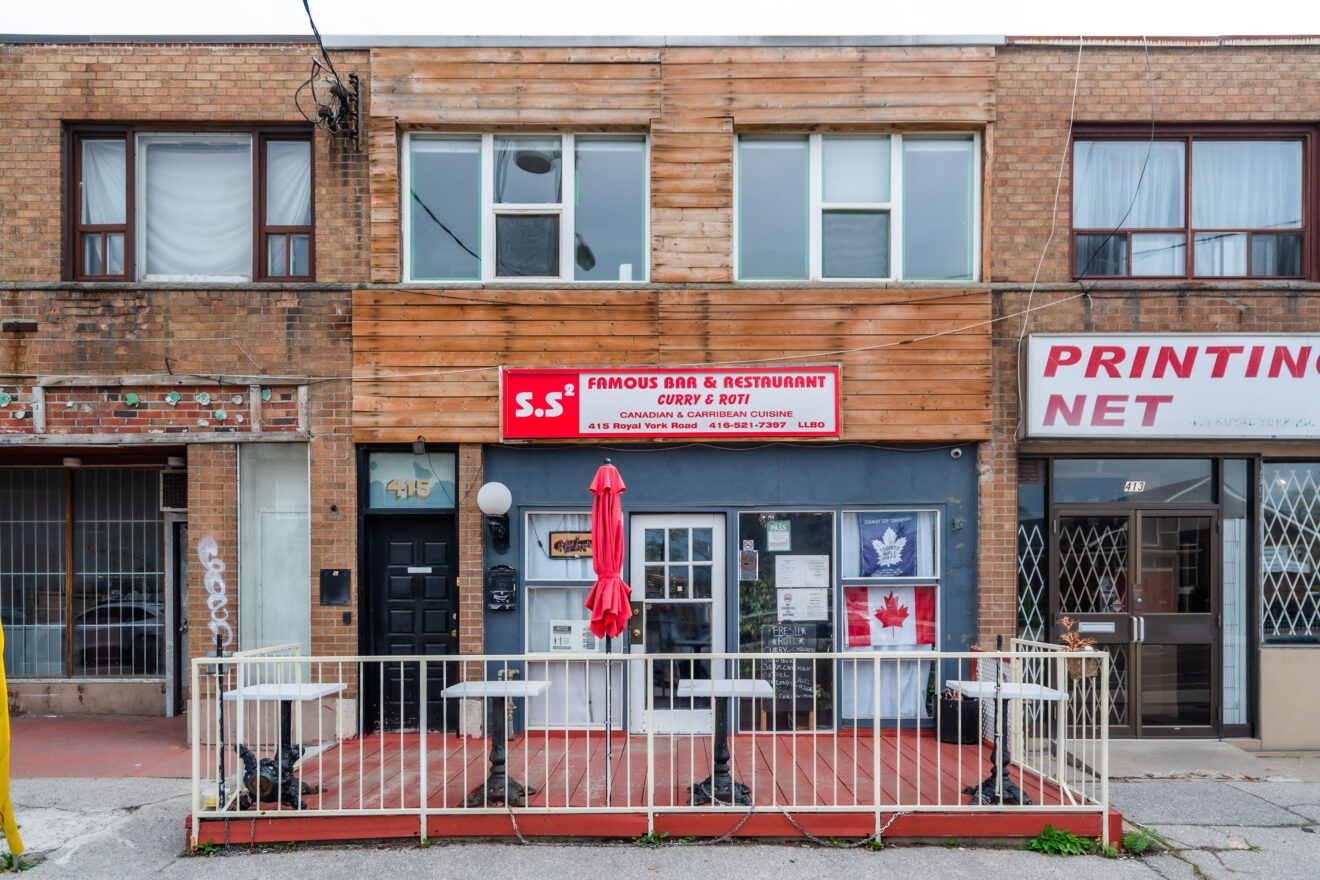Managing properties requires expertise, efficiency, and an understanding of industry regulations. However, property management isn’t a one-size-fits-all approach. The strategies and responsibilities vary significantly between commercial and residential real estate. If you’re considering full service property management Toronto, understanding the key differences can help you make informed decisions about your investment.

Both commercial and residential property management involve overseeing tenant relations, maintenance, rent collection, and legal compliance. However, the complexity, lease structures, tenant expectations, and financial management aspects differ vastly between the two.
Major Difference between commercial and residential property management
1. Tenant Relations and Expectations
One of the most noticeable differences between commercial and residential property management is the relationship with tenants.
Residential Tenant Expectations
Residential tenants are typically individuals or families renting homes, apartments, or condominiums. They prioritize comfort, security, and a hassle-free living experience. Property managers in this sector must be responsive to tenant concerns, such as maintenance requests, noise complaints, and lease renewals.
Moreover, the leasing process is often emotional, as tenants are looking for a place to call home. This means property managers must emphasize customer service, ensuring a positive tenant experience to maintain high occupancy rates.
Commercial Tenant Expectations
Commercial tenants, on the other hand, are businesses that lease office spaces, retail stores, warehouses, or industrial properties. Their priorities revolve around business operations, foot traffic, infrastructure, and lease flexibility.
Unlike residential tenants, businesses are less concerned with aesthetics and more focused on functionality. Property managers working with commercial clients must ensure compliance with zoning laws, provide access to essential utilities, and accommodate business growth. Relationships are more transactional, but maintaining professional rapport is essential for lease renewals and long-term occupancy.
2. Lease Structures and Agreements
The leasing process in residential and commercial real estate differs significantly in terms of duration, complexity, and financial obligations.
Residential Leases
- Typically shorter in duration (6 months to 2 years).
- Standardized agreements with fixed rental terms.
- Property managers handle lease renewals, tenant screening, and move-in/move-out logistics.
- Security deposits are common, with potential penalties for early termination.
Residential leases offer stability to tenants and provide predictable income for property owners. However, high turnover rates can lead to increased management costs.
Commercial Leases
- Longer lease terms (3 to 10+ years).
- Complex agreements that may include rent escalations, maintenance responsibilities, and business-specific clauses.
- Triple Net (NNN) leases, where tenants cover property taxes, insurance, and maintenance, reducing landlord costs.
- Negotiable terms based on the business type, location, and market conditions.
Because commercial leases are often tailored to specific business needs, property managers must possess expertise in contract negotiations, financial forecasting, and legal compliance.
3. Maintenance and Repairs
Both residential and commercial properties require routine maintenance, but the scale and urgency differ.
Residential Property Maintenance
- Property managers handle all repairs and maintenance requests.
- Landlords are responsible for fixing appliances, plumbing, HVAC, and structural issues.
- Emergency services (e.g., heating failures, plumbing leaks) require immediate attention.
- Regular property inspections help prevent long-term damage.
Property managers in the residential sector must be proactive in responding to maintenance concerns, as tenant satisfaction directly impacts occupancy rates.
Commercial Property Maintenance
- Tenants often handle internal repairs and modifications.
- Property managers oversee exterior maintenance, structural integrity, and shared spaces.
- Scheduled maintenance for elevators, fire safety systems, and HVAC is essential.
- Larger budgets allow for preventative maintenance rather than reactive fixes.
Commercial tenants are generally more self-sufficient when it comes to property upkeep, but managers must ensure compliance with safety regulations and lease obligations.
4. Rent Collection and Financial Management
Residential Rent Collection
- Fixed monthly payments, typically inclusive of utilities.
- Property managers enforce late fees and eviction procedures if necessary.
- Limited rental increases due to rent control regulations in certain areas.
Residential rent collection is relatively straightforward, but property managers must deal with tenant disputes, missed payments, and rent control laws.
Commercial Rent Collection
- Rent structures vary, including base rent, percentage rent (retail), and additional fees for maintenance or taxes.
- Late payments can have significant financial implications, requiring strict enforcement policies.
- Tenants are often responsible for a portion of operating costs, reducing the landlord’s financial burden.
Since commercial leases are longer and involve higher financial stakes, managers must ensure timely rent collection and financial forecasting to protect owner investments.
5. Legal and Regulatory Differences
Property management in both sectors involves compliance with federal, state, and local regulations, but the requirements differ.
Residential Property Laws
- Tenant rights and eviction processes are strictly regulated.
- Landlords must adhere to fair housing laws, ensuring non-discriminatory leasing practices.
- Security deposit limits, lease termination policies, and maintenance obligations vary by jurisdiction.
Property managers must stay updated on tenant-landlord laws to prevent legal disputes and ensure compliance with rental housing regulations.
Commercial Property Laws
- Fewer tenant protections compared to residential leasing.
- Lease terms are more flexible, allowing businesses to negotiate contracts suited to their needs.
- Compliance with zoning laws, fire codes, and accessibility regulations is essential.
Since commercial properties involve larger financial transactions, lease disputes often require legal intervention or mediation. Property managers must work closely with attorneys and regulatory bodies to ensure contract enforceability.
6. Marketing and Tenant Acquisition
Residential Marketing Strategies
- Listings on rental websites, social media, and local advertising.
- Staging properties to attract prospective tenants.
- Competitive pricing based on market demand and amenities.
Residential leasing is driven by emotion, so property managers focus on aesthetics, neighborhood appeal, and lifestyle benefits.
Commercial Marketing Strategies
- Direct outreach to businesses and corporate clients.
- Listings on commercial real estate platforms.
- Negotiation of lease incentives, such as rent-free periods or custom build-outs.
Since commercial properties cater to businesses, managers target industry-specific tenants and leverage long-term leasing benefits.
7. Investment and Profitability Considerations
Investors evaluating property management services must weigh profitability and risk factors in both sectors.
Residential Property Investment
- Lower entry costs compared to commercial properties.
- Steady demand for housing ensures consistent rental income.
- Higher turnover rates can lead to increased vacancy risks.
Commercial Property Investment
- Higher initial investment with greater long-term returns.
- Lower turnover rates due to longer lease agreements.
- Economic downturns and market shifts can impact business occupancy rates.
Understanding these financial dynamics helps investors make informed decisions when choosing between residential and commercial properties.
Why Choose InTrust.?
At InTrust., we specialize in full-service property management that caters to both commercial and residential clients in Toronto. Our expertise, industry knowledge, and commitment to excellence set us apart. Whether you’re managing a residential rental portfolio or overseeing a commercial property investment, our team provides tailored solutions that maximize returns while ensuring a seamless management experience.
With a strong focus on tenant satisfaction, lease compliance, and financial optimization, InTrust. is your trusted partner for property management success. Let us handle the complexities while you enjoy the benefits of a professionally managed investment.

Questions About Commercial Real Estate?
See the services we offer to learn how we can help you achieve more with your asset.
Learn More


